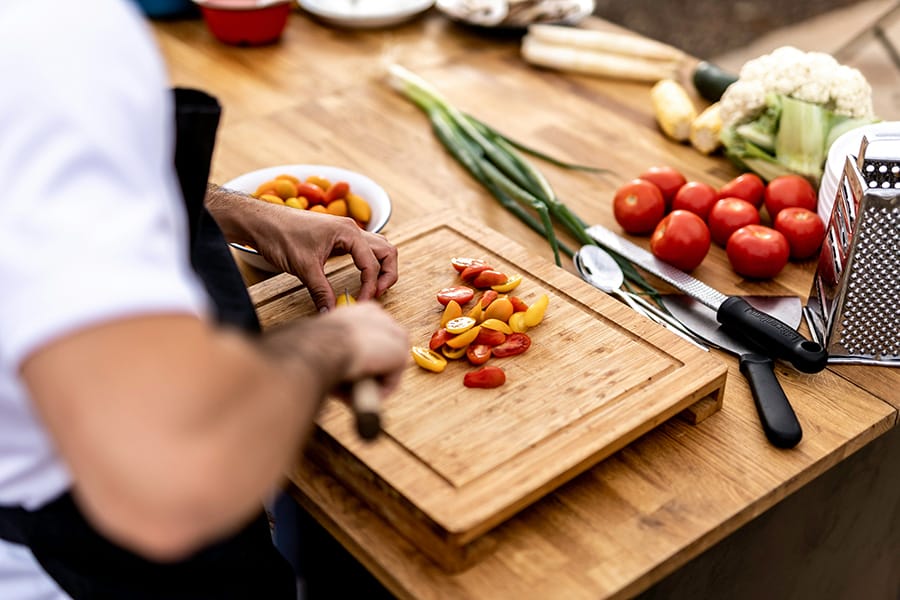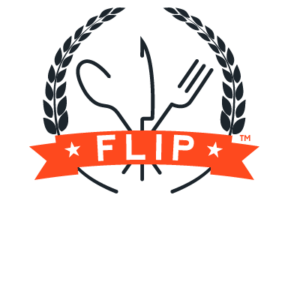Coming up with a name for your personal chef business is easily one of the most creative parts of starting this exciting new venture, as well as one of the most challenging.
So, what’s in a name, and how do you know which one is best for your business?
Whether you’re looking to rename your operation or are starting a new personal chef business, we’re here to help.
Get inspired with 50 great name ideas, plus lots of helpful tips on coming up with your name and next steps for your business!
5 Strategies to Come Up With Personal Chef Name Ideas
Specialty Name Examples
If you specialize in a certain type of cuisine, whether that’s regional fare or food that caters to a specific dietary restriction, consider incorporating that into your business name.
- Keto Kitchen Creations
- Paleo Plates Personal Chef
- Farm-to-Table Feasts
- Global Gourmet Chef
- Seafood Savant
- Decadent Desserts Chef
- Comfort Cuisine Chef
- Plant-Based Palate Chef
- The Vegan Virtuoso
- Heart-Healthy Chef
How Should I Incorporate My Specialty or Cuisine Into My Business Name?
The best way to include your culinary specialty in your business name is to be very clear about it.
For example, if you’re a personal chef who specializes in making vegan food, include “vegan” in your business name.
If you’re making specialty cuisine, you’re targeting a very specific market. This means you’ll want those potential customers to immediately recognize that your business is catered to their needs and interests.
Wordplay Name Examples
Names that use wordplay are great for businesses that want to evoke a sense of playfulness or fun.
- Thyme to Dine
- The Missing Ingredient
- Whisk & Reward
- Chef of All Trades
- Pan It Out!
- Ready, Set, Cook!
- A Dash of Delight
- The Clever Cook
- Mealtime Muse
- Pots & Panache
What Makes Personal Chef Business Names Memorable and Effective?
Incorporating puns or alliteration into your business name can make it easier for people to remember.
Humor and clever wordplay tend to evoke positive emotions, so potential customers will be more likely to remember your business name if it involves these elements.
If you can work a rhyme into your business name, even better! Rhymes are easy to remember because of their musical quality.
Emotional Name Examples
Tugging on your customers’ heartstrings is a great way to get them to feel emotionally invested in your business.
- Hearth & Home Cuisine
- Gather ‘n’ Savor Chef
- Memories at the Table
- Comfort Cravings Chef
- From the Heart Culinary
- Old-Fashioned Feast
- Warm Welcome Dinners
- Family Table Chef
- Moments Made Meals
- Tender Table Chef
Locally Inspired Name Examples
Show some hometown pride by incorporating your business’ location into your name! Don’t limit yourself to just city names, though—regions and landmarks can be just as effective.
- Big Apple Bites Chef
- Pacific Plate Personal Chef
- Nashville Nosh Personal Chef
- Blue Ridge Bites Chef
- Seattle Sizzle Chef
- Gulf Coast Gourmet
- Tahoe Tastes Personal Chef
- Denver Delights Personal Chef
- Napa Valley
- Nourishments
- Charleston Charm Cuisine
Personalized Name Examples
Working your own name into your business name adds a unique personal touch and can easily set your business apart from the competition.
The examples below also lean into alliteration, which can make your chef business name more memorable.
- Elizabeth’s Epicurious Eats
- Lindsey’s Culinary Delights
- Julis’ Gourmet Journeys
- Matthew’s Menu Magic
- Fresh Flavors by Katie
- Khaleel’s Kitchen Connection
- Tricia’s Tasteful Table
- Caitlyn’s Creative Cuisine
- Brianna’s Banquets
- Savannah’s Southern Specialties
Should I Include My Own Name in My Business Name?
Yes, if you want to add a very personal touch to your business name! It sets your business apart and creates an instant friendly and personal connection with potential customers.
Try working your first or family name into the name of your business. If you’re running a family affair, incorporating your family name is a great way to signal this to your audience.
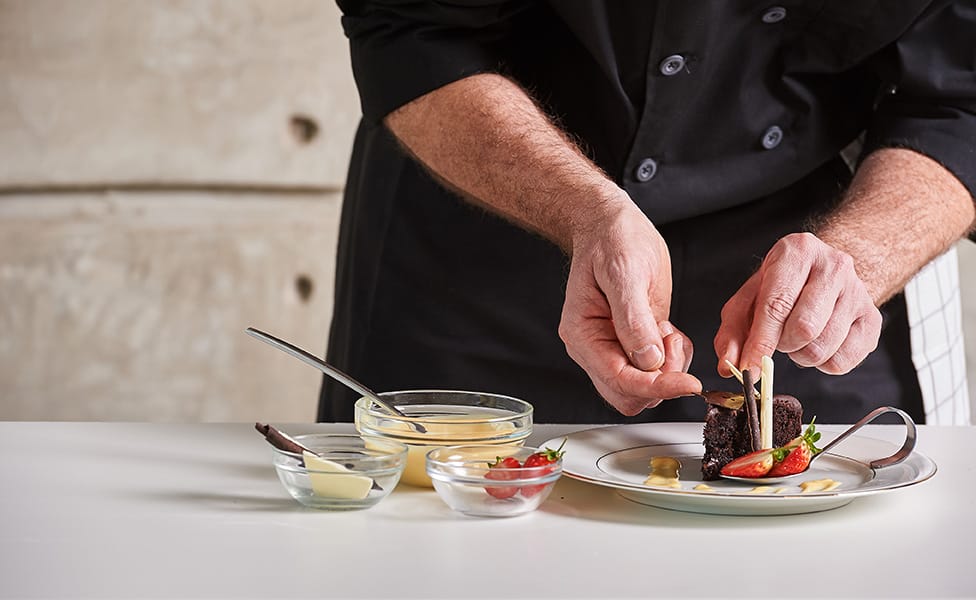
How to Come Up With Your Own Personal Chef Business Name
Consider Your Business Goals
Your name will often be the first impression people have of your business, so you want to come up with a name that will really resonate with them and communicate what your business is all about.
Ask yourself the following:
- What are your business’ core values?
- Who is your target customer?
- What goals do you have for your business?
For example, if using sustainably sourced ingredients is one of the most important aspects of your business, a name like “Sustainable Supper” would help get that across to your target customer right away.
Do Competitive Research
Coming up with a name you like is hard enough, but the disappointment of learning that another business has the same name can feel crushing.
Instead of waiting until after you’ve gotten attached to a name, look at other personal chef businesses in your area to see what’s already in use.
What Are the Legal Considerations When Naming My Business?
Be careful not to choose a business name that’s trademarked. If you do business under that name, you could face charges of willful infringement and face a fine of up to $150,000.
To avoid this, search for trademarked names on the U.S. Patent and Trademark Office’s system to see if a name you want to use is unavailable.
Find Search-Friendly Words
Using search-friendly terms in your business name increases your chances of showing up on the first page of results when someone searches for personal chefs in their area. This is called search engine optimization (SEO).
Words like chef, personal chef, private chef, meal delivery, meal plan service, and location-based words like the city, state, or region you do business in can make your business name SEO-friendly.
Use these free SEO tools to find the best keywords for your business name:
Experiment With AI or a Name Generator
Everyone wants to be able to say they came up with their business name off the top of their head, but don’t let that stop you from playing around with a name generator!
These tools can be a great way to get the creative juices flowing. Not everything you generate will be ready to use as-is, but you can use elements of different results to create something you love.
Try this personal chef name generator that you can add different keywords to.
Artificial intelligence (AI) can also be a huge help here. Try using Chat GPT, which is totally free and more sophisticated than a name generator. You can feed it more complex prompts and get better results than you will with most generators!
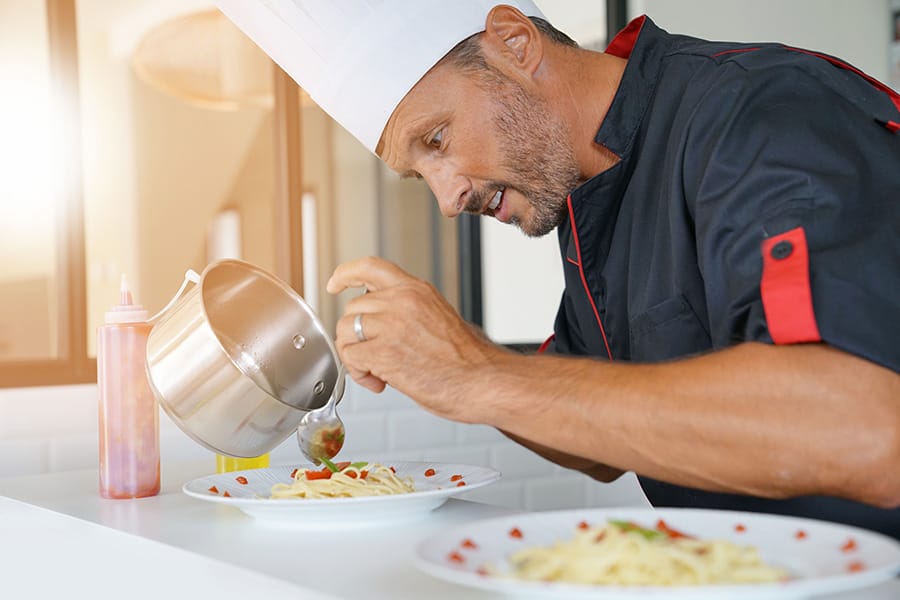
Next Steps for Your Personal Chef Business
Get Feedback
Take your top contenders and source feedback from other people. You can casually gather opinions from friends and family and/or create a survey from SurveyMonkey or an Instagram poll to get a wider range of responses from online groups.
While you should ultimately be happy with the name you pick for your business, it’s still important to get feedback from other people in case the majority of them prefer one name to another.
You might be surprised to see how others feel about the names you came up with!
Buy a Domain Name
Every personal chef business needs a website! Sometimes it can be hard to find a domain name that isn’t already taken, so use a domain registrar like Domain.com to see if the one you want is available to buy.
If the domain you want is taken, this site will also give you the contact information of the person who owns it.
Some people own domains that they aren’t actively using or are open to selling, so it’s worth a shot to reach out and see if you could buy it from them.
The average domain name costs $10–$20 per year, but the price can vary—especially if you want the coveted “.com” extension.
It’s well worth the cost because owning the domain for your business makes you appear credible and professional to potential customers.
Register Your Business
This is where you make it official. Once you register your business, the name you pick will legally be yours to use!
The United States Small Business Association (SBA) has a list of steps you should follow to register your business name.
Once you’ve done that, visit the Secretary of State’s website for the state you do business in to get specific instructions on how to register your business.
If you want to trademark your business name, you can do this through the United States Patent and Trademark Office. This isn’t necessary in order to legally do business under the name you choose, but it will prevent other personal chef businesses in the U.S. from using the same name.
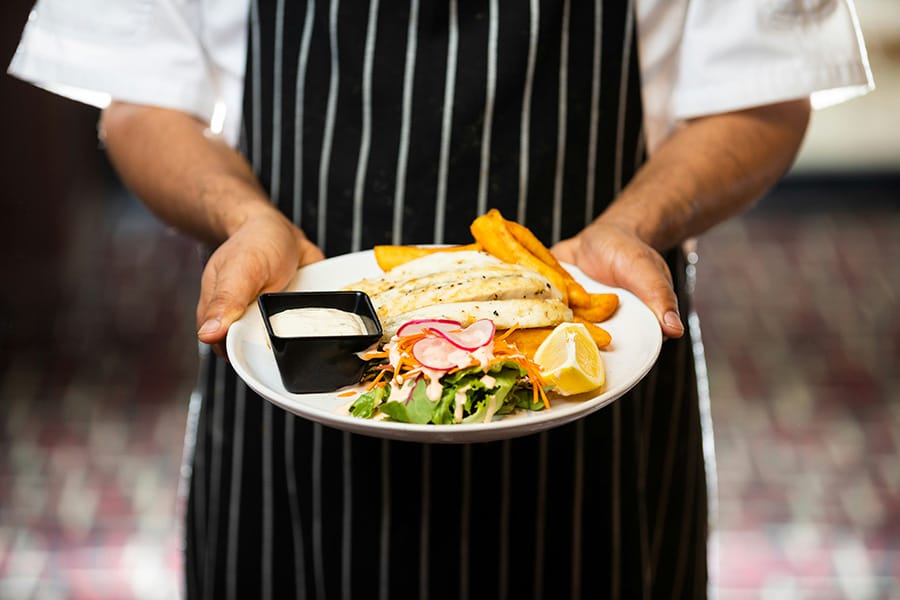
Protect Your New Personal Chef Business
Once you’ve picked a name, registered your business, and are ready to get the ball rolling on your personal chef venture, don’t forget to protect it with insurance!
Like any business, personal chefs face risks that could lead to expensive claims.
For example, if one of your clients gets food poisoning from something you served them, you could be held responsible to pay for their medical bills and lost wages. Or, if you break the oven door at your client’s house while cooking for them, you could be held liable to replace it.
Accidents happen, but with personal chef insurance you can rest assured knowing you’ll have financial support with common third-party bodily injury and property damage claims.
Learn more about how insurance can benefit your personal chef business and set yourself up for success in the culinary world!
FAQs About Naming Your Personal Chef Business
How Can I Ensure My Business Name Is Unique?
Do your research beforehand to see what other personal chefs are using, especially those that are operating in your area. A simple Google search for personal chefs in your city or state should give you a good idea of what’s already in use.
While having a unique name is important, it’s more critical that your name accurately reflects your business and speaks to your target market. You might come up with a creative name idea that doesn’t make it clear what your business does or what you have to offer, and that’s worse than having a straightforward name.
Can I Change My Business Name Later On?
Should My Business Name Be Descriptive or Abstract?

By Alex Hastings
Alex is a Marketing Copywriter at Food Liability Insurance Program (FLIP). In her free time, she enjoys reading, birding, traveling, and finding any excuse to get brunch.

